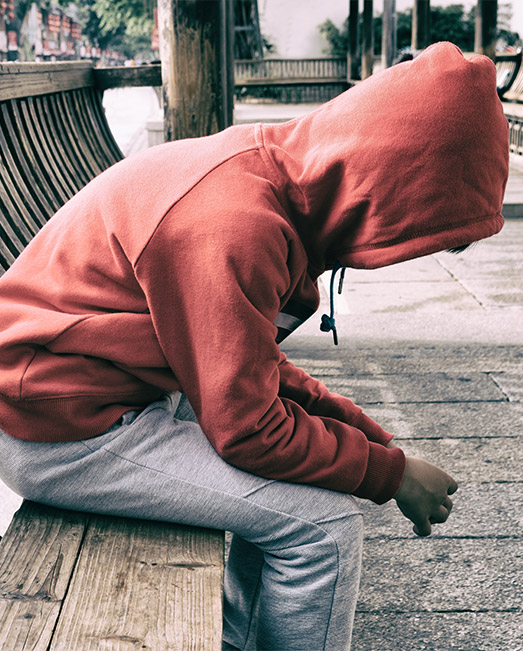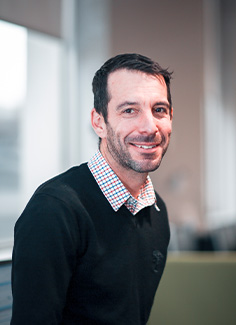Community
Copyright@ Australian Catholic University 1998-2026 | ABN 15 050 192 660 CRICOS registered provider: 00004G | PRV12008
Copyright@ Australian Catholic University 1998-2026 | ABN 15 050 192 660 CRICOS registered provider: 00004G | PRV12008

When it comes to school suspension is it a case of teaching kids a lesson? Or, as Dr Daniel Quin argues, are we merely showing troubled kids that we just don't care.
Dr Daniel Quin never questioned the need for suspension back in his teaching days. It was just something that happened. It showed a disruptive child there were boundaries and gave hectic classrooms a day of relief.
That all changed when he stumbled across a Facebook post from a former student who’d just been suspended.
“He’d been suspended for the day and all his friends were commenting, ‘Wow, that’s awesome, you should go and have a bet on the New York Knicks’,” said Dr Quin. “I realised suspension wasn’t a punishment for this kid. He was at home, unsupervised, excluded from school and just wasting away the day.”
Dr Quin was studying psychology at ACU at the time, “literally I was Iearning about punishment when this post went up,” and so he decided to look deeper. It was a move that set him on a course to his own research into the effectiveness of school suspension.
There’s a common misconception that most children are being suspended for violent behaviour, but Dr Quin explains it’s only a small percentage.
“That’s really only five to 10 per cent of suspensions, and yes, if a child turns up to school with a weapon or intoxicated then they should be removed. But the reality is most students are suspended for talking out of turn, being disruptive, swearing, and oddly, for being absent, which is just counterintuitive,’’ he said.
“Many of these kids are already at risk. They come from low socio-economic backgrounds, they are struggling with numeracy or literacy, they have challenges at home or behavioural disorders.
“They have the most to benefit for being in a classroom, but they’re the most likely to be removed.
“To completely remove a child from the school just teaches them that nobody is going to support them. It’s another stress that when compounded with what is already going on in their life may predispose them to more behavioural problems.”
Dr Quin's research showed that on the day of suspension most children spent the day alone.
“Mostly they’re sitting at home wasting time. They’re online, maybe they’ll meet some mates down at the shops. They’re not at school with responsible adults, they’re not at home with responsible adults. They’re just hanging around,” Dr Quin said.
The students who took part in Dr Quin’s research admitted that the punishment did little or nothing to help them solve the problems that got them suspended in the first place, and that instead of feeling worried or embarrassed, they felt happy or even bored.
Far from ‘teaching them a lesson’, suspension appears to compound behavioural issues.
“Once these kids return to school they feel less supported by their teachers than they did before the suspension. And the pace of teaching is such that the teacher may only be able to spend five minutes trying to help them catch up on the work they’ve missed and that child falls further behind,” he said.
“If we consider that they were probably already struggling academically, and that this may have been a contributing factor to their behavioural issues, suspension of even a day can have a major impact on the rest of their schooling.
“We know that children who have been suspended are more likely to skip school, participate in anti-social behaviour and leave school early. In turn, early school departure is associated with greater unemployment, diminished happiness in home life, diminished health, higher mortality rates, and an increased association with the criminal justice system.
“In the US,” said Dr Quin, “they call this the school to prison pipeline.”

But what’s the effect of suspension on their peers, their teachers and the school community? Could it be worth the suspension of one to help the many?
Dr Quin concedes there may be a sense of relief in the classroom once a disruptive child has been removed, but he still advocates for a more inclusive approach.
“It can be hugely stressful to have a child in the classroom who is repeatedly doing the wrong thing, but without addressing the root causes of the behaviour the problems will simply return when the child does.
“Instead of pushing that child off to the side, out of the room or out of the school, we should be supporting them in the classroom.
But it’s not, he said, a task that should fall on teachers.
“The school needs have access to psychologists, speech pathologists, numeracy and literacy aides, and have the funding they need to address the underlying causes.
If we provided those early intervention services, we would reduce the need for suspension.
“What my research showed was that these kids feel unwanted by the school system. They’re probably already struggling academically or socially and through suspension we’re saying, ‘We don’t want you here, you’re not welcome.”
Supporting them during their schooling can lead to better long-term outcomes for all.
Dr Daniel Quin is a teacher and school
psychologist. He studied a Doctor of Philosophy (PhD), Educational Psychology at ACU.

Copyright@ Australian Catholic University 1998-2026 | ABN 15 050 192 660 CRICOS registered provider: 00004G | PRV12008